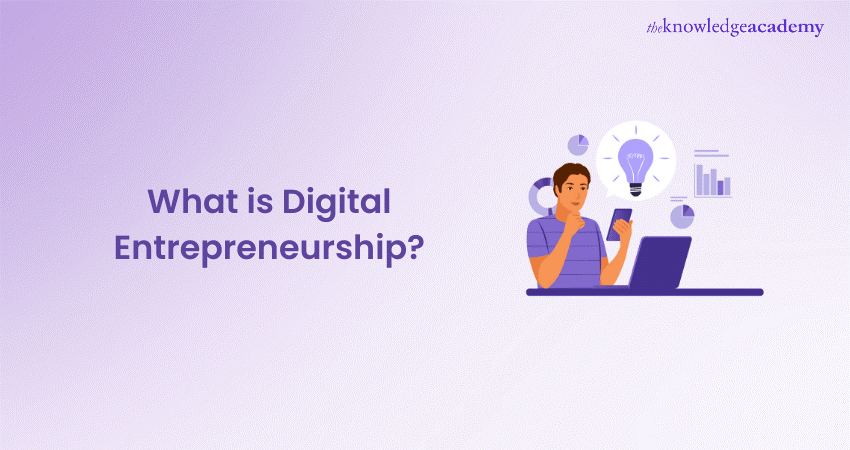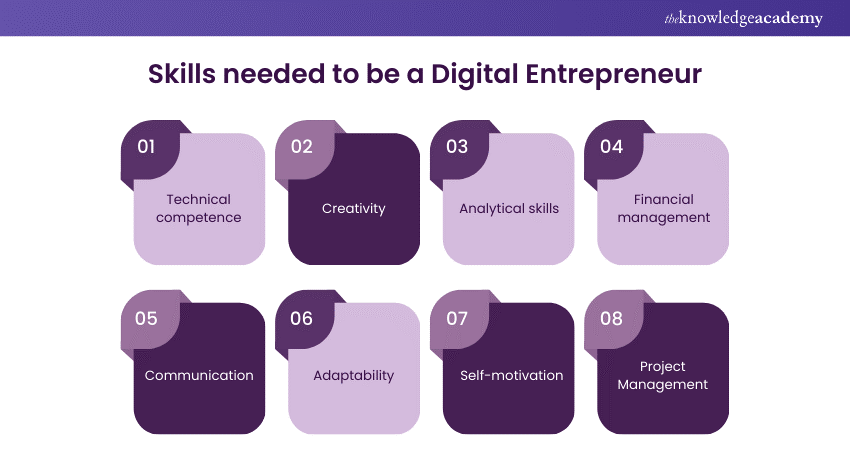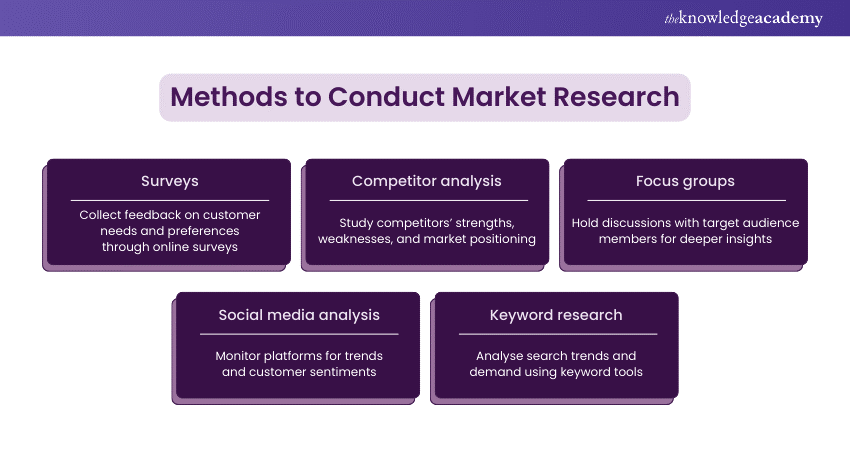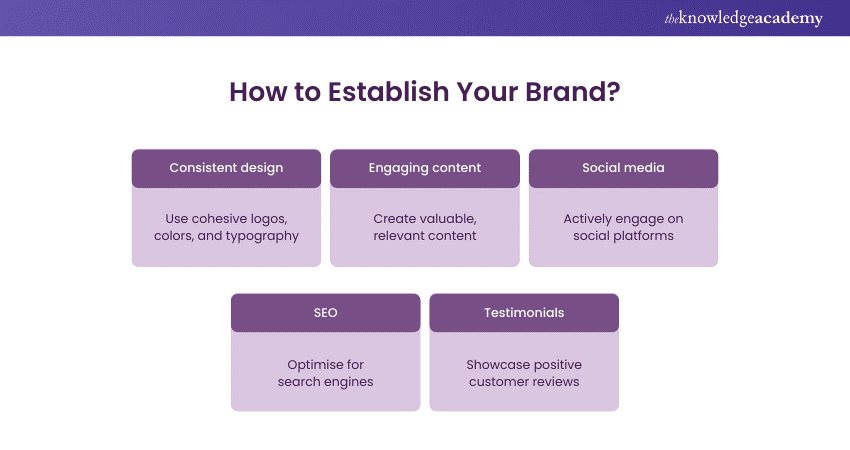We may not have the course you’re looking for. If you enquire or give us a call on +45 89870423 and speak to our training experts, we may still be able to help with your training requirements.
Training Outcomes Within Your Budget!
We ensure quality, budget-alignment, and timely delivery by our expert instructors.

Dream of being your own boss but crave the flexibility and reach of the online world? Then Digital Entrepreneurship might be your perfect path! This exciting field allows you to turn your ideas into reality by using the power of the internet and technology. But what exactly is this entrepreneurship, and how can you get started? This extensive blog will include everything that you need to know.
In this blog, we'll explore the different avenues of Digital Entrepreneurship, from e-commerce stores to online courses and social media ventures. We'll break down the key skills and tools you'll need to succeed and provide inspiring examples of Digital Entrepreneurs who are paving the way.
So, buckle up and get ready to unlock the potential of Digital Entrepreneurship and turn your vision into a thriving online business!
Table of Contents
1) What is Digital Entrepreneurship?
2) Who is a Digital Entrepreneur?
3) Why go for Digital Entrepreneurship?
4) What skills do you need to be a Digital Entrepreneur?
5) Six steps to launch a digital business
6) Pros and cons of being a Digital Entrepreneur
7) Digital Entrepreneurship vs Traditional Entrepreneurship
8) Conclusion
What is Digital Entrepreneurship?
Digital Entrepreneurship is the creation and running of a business on the internet with the help of digital technologies. This comprises e-commerce, digital marketing, online learning, and software development. Entrepreneurs working online take advantage through the use of the internet to exploit global markets, innovate, and scale business models with lower costs and flexible business models.
Who is a Digital Entrepreneur?
A Digital Entrepreneur is someone who exploits online platforms and digital technology to create or build businesses. They exploit the internet to offer products, services, or information. Most of them concentrate on e-commerce, digital marketing, online education, or even Software Development. They exploit tools like social media, SEO, and Data Analytics to access and interact with a global audience.
Digital Entrepreneurs take advantage of lower start-up costs, ease of entering into the industry, and high economies of scale. Key to his or her traits are being adaptive, innovative, and having a good understanding of digital trends. Examples include running an online store, developing mobile apps, or creating content for blogs and YouTube channels whose traffic is monetised. Digital Entrepreneurship is crucial in the modern economy for driving innovation and accessibility.
Why go for Digital Entrepreneurship?
Now that you have understood what Digital Entrepreneurship is, let us look at a few of its features and why you should be considering it.
Increased opportunities
Digital Entrepreneurship offers so many opportunities through the dissolution of entry barriers that existed traditionally. One can enter a range of industries, innovate with the business models they wish to offer, and even reach a worldwide audience. Quick experimentation and iteration, possible in a digital environment, enable entrepreneurs to respond promptly to market demands and emerging trends.
Unconquered markets
The digital world gives access to untapped markets. Entrepreneurs could identify and serve niche audiences with special needs, leveraging the global reach of the internet. It allows innovation in unique products and services so that one can grow their business beyond the limitations of geography and traditional market barriers.
Easy access to consumers
Easy access to consumers is afforded through the digital platform, whether it be through social media, email marketing, or search engines. An entrepreneur can have an interaction with their audience, receive feedback, and offer tailored experiences. Direct linkage further strengthens customer relations, builds brand loyalty, and makes targeted marketing effortless.
Reassessing the meaning of work and life
Digital Entrepreneurship catalyses the reconsideration of work-life balance. It is linked with the flexibility of the working hours and the possibility of working from absolutely any place—that is, when an entrepreneur has the possibility to design the schedule. It can better life quality, increase job satisfaction, and give an opportunity to combine the achievement of professional goals with the realisation of personal passions.
Remote work flexibility
One of the biggest benefits of Digital Entrepreneurship is flexibility in remote working. You can run your business from any part of the world, eliminating the need for an office and commuting. This supports better work-life balance, attracts top talent regardless of their location, and drives costs down on business operations.
Enhance your relationship-building skills with our Building Business Relationships Course – join today!
What skills do you need to be a Digital Entrepreneur?
To be a successful Digital Entrepreneur, you have to be conversant in a variety of skills:

a) Technical competence: Web Development, Digital Marketing, and e-commerce platform knowledge. In addition, knowledge about SEO, Social Media Management, and analytical tools will be contributive in promoting and optimising your online presence effectively.
b) Creativity: You need to be an innovator and creative in developing unique products or services that will attract and retain customers with content. Above all, one needs to be creative in problem-solving, which pops up in the process, and in a position to draw the line to the next opportunity.
c) Analytical skills: Involves the ability to interpret and gather data and metrics to come up with logical business decisions. Part of it involves the ability to understand website traffic, customer behaviour, and market trends in making adjustments and improvements to strategies for better performance.
d) Financial management: The ability to manage your budget, cash flow, and financial planning in running and scaling your business. Some basic accounting principles and the use of financial tools can help you have your finances in order and make wise financial decisions.
e) Communication: Strong written and verbal communication skills are required for marketing, customer service, and networking. This assists in building good relationships with customers, partners, and other stakeholders.
f) Adaptability: Things change very fast in the digital world. It is required to be adaptable to change and open to learning new technologies and trends to remain competitive.
g) Self-motivation: Entrepreneurship calls for high self-discipline and motivation. Setting goals, time management, and staying focused can drive your business forward.
h) Project Management: The ability to organise, schedule, and make use of resources properly ensures that projects are completed on time and within budget.
Six steps to launch a digital business
Let us now look at the crucial steps of launching a digital business:
1) Generate ideas and identify a market
Any digital business originates from the idea-generating process. You need to come up with an idea that excites you, something that you can do based on what you know and the gap in the market. Identify the potential markets by the current trends, consumer needs, and pain points. Look for niches in the market where your business can provide unique value. All this is going to require creativity and an understanding of the market so that the idea you propose can be feasible and allow you to have a dedicated customer base for your business.
2) Research your market
Market information, target audience, competitor analysis, and industry landscape. You can have surveys, interviews, and many other online tools that can get you data on customer preferences, market size, and competition.

Analyse this information to guide you on how to fine-tune your business idea and look for opportunities for differentiation. The right customisation of products and services can be done with proper market understanding, which will help to make the right choices.
3) Set goals and make a business plan
Your digital business should have clear and measurable goals defined. There has to be an outline of objectives, both short- and long-term, which will include the targets of revenue, customer acquisition, or product development. Develop a comprehensive business plan articulating your value proposition, target market, marketing strategies, operational plan, and financial projections. Well-detailed and well-thought-through business plans are tools to be used as a roadmap in guiding your business's growth and in securing funding when need be.
4) Establish your brand
Create strong brand identity to appeal to your target audience. Think of a strong, compelling brand name, a logo, and a tagline.

Design a professional website and be present on the right social media platforms. Develop a good brand story that highlights your values, mission, and unique selling points. Consistent branding across all channels will help build credibility and trust, hence making it easy to acquire and retain customers.
5) Launch and Promote the Venture
Launch your digital business by enabling the website to be accessible to the public and the products or services for sale. Create and incorporate a marketing strategy for the promotion of the venture, including the promotion of a website through social media marketing, content marketing, email campaigns, and paid advertising. Monitor the launch closely and gather feedback from the initial users to make corrections. Effective promotion informs the target market about your business and its products or services.
6) Scale and Grow the Company
Focus on scaling and growing your digital business through optimisation of operations, expansion of your product or service range, and entrance into new markets. Invest in technology and tools that elevate your efficiency and customer experience. Develop customer retention and acquisition strategies, for example, through loyalty programmes and partnerships. Keep analysing the performance metrics and market trends to adapt and innovate. Scale sustainably for long-term success and competitiveness.
Pros and cons of being a Digital Entrepreneur
Like other professions, Digital Entrepreneurship has its advantages and disadvantages. Let’s look at both:
Benefits of being a Digital Entrepreneur
a) Global reach: You have access to a global audience, so you can scale up your business beyond your geographical boundary.
b) Lower startup costs: You save a lot of money, which otherwise, in a physical store and infrastructure, would have been spent.
c) Flexibility: The ability to work from anywhere at any time provides an increase in work–life balance.
d) Scalability: It's easier and faster to scale and move with the market requirement using digital tools and platforms.
e) Innovation: Opportunities in which you can innovate with new business models and technologies will keep you ahead in this highly growing market.
Drawbacks of being a Digital Entrepreneur
a) High level of competition: High competition in the digital marketplace makes it hard to differentiate and attract customers.
b) Technical issues: A sound understanding of digital tools and technology is required, which might give creeps to people not from a technical background.
c) Cybersecurity threats: More vulnerability to cyber threats and data breaches that again require stringent security measures.
d) Constant change: Rapid changing technology along with digital trends requires perpetual learning and change.
e) Isolation: Working remotely might lead to isolation with a lack of social interaction, causing effects on the well-being of the mind.
Digital Entrepreneurship vs Traditional Entrepreneurship
Digital Entrepreneurs are those individuals who set and run businesses utilising the power of the internet and technology; think of online platforms, mobile apps, or digital products. Think of e-commerce stores, social media influencers, or SaaS companies. Traditional entrepreneurs are those who would set up businesses that basically reside in the physical world: a local service provider, a restaurant, or a brick-and-mortar store.
|
Feature |
Digital Entrepreneurship |
Traditional Entrepreneurship |
|
Focus |
Online platforms, technology |
Physical locations, tangible products/services |
|
Reach |
Global |
Local or regional |
|
Startup Costs |
Can be lower due to fewer physical requirements |
May require higher upfront investment for property or equipment |
|
Scalability |
Easier to scale rapidly online |
Growth often limited by physical space or resources |
Boost your workplace efficiency with our Organisational Skills Course – join today!
Conclusion
Now, empowered with this comprehensive guide to Digital Entrepreneurship, you're ready to launch your online adventure! Remember, the digital world offers endless possibilities. So, embrace your creativity, leverage the tools at your disposal, and transform your passion into a flourishing digital enterprise.
Understand how to manage Entrepreneurial risk with our Entrepreneurship Course – join today!
Frequently Asked Questions

Digital Entrepreneurs often battle standing out in a crowded online space, attracting customers effectively, and managing the technical features of running an online business.

Technology enables Digital Entrepreneurship by providing tools for online marketing, e-commerce, data analytics, and automation. It facilitates global reach, enhances efficiency, and supports innovation and scalability.

The Knowledge Academy takes global learning to new heights, offering over 30,000 online courses across 490+ locations in 220 countries. This expansive reach ensures accessibility and convenience for learners worldwide.
Alongside our diverse Online Course Catalogue, encompassing 17 major categories, we go the extra mile by providing a plethora of free educational Online Resources like News updates, Blogs, videos, webinars, and interview questions. Tailoring learning experiences further, professionals can maximise value with customisable Course Bundles of TKA.

The Knowledge Academy’s Knowledge Pass, a prepaid voucher, adds another layer of flexibility, allowing course bookings over a 12-month period. Join us on a journey where education knows no bounds.

The Knowledge Academy offers various Personal Development Courses including Entrepreneurship Course, Organisational Skills Course and Building Business Relationships Course. These courses cater to different skill levels, providing comprehensive insights into the Resource Planning Template.
Our Business Skills Blogs cover a range of topics related to Entrepreneurship, offering valuable resources, best practices, and industry insights. Whether you are a beginner or looking to advance your Entrepreneurial skills, The Knowledge Academy's diverse courses and informative blogs have you covered.
Upcoming Business Skills Resources Batches & Dates
Date
 Entrepreneurship Course
Entrepreneurship Course
Fri 17th Jan 2025
Fri 21st Mar 2025
Fri 16th May 2025
Fri 18th Jul 2025
Fri 19th Sep 2025
Fri 21st Nov 2025







 Top Rated Course
Top Rated Course



 If you wish to make any changes to your course, please
If you wish to make any changes to your course, please


